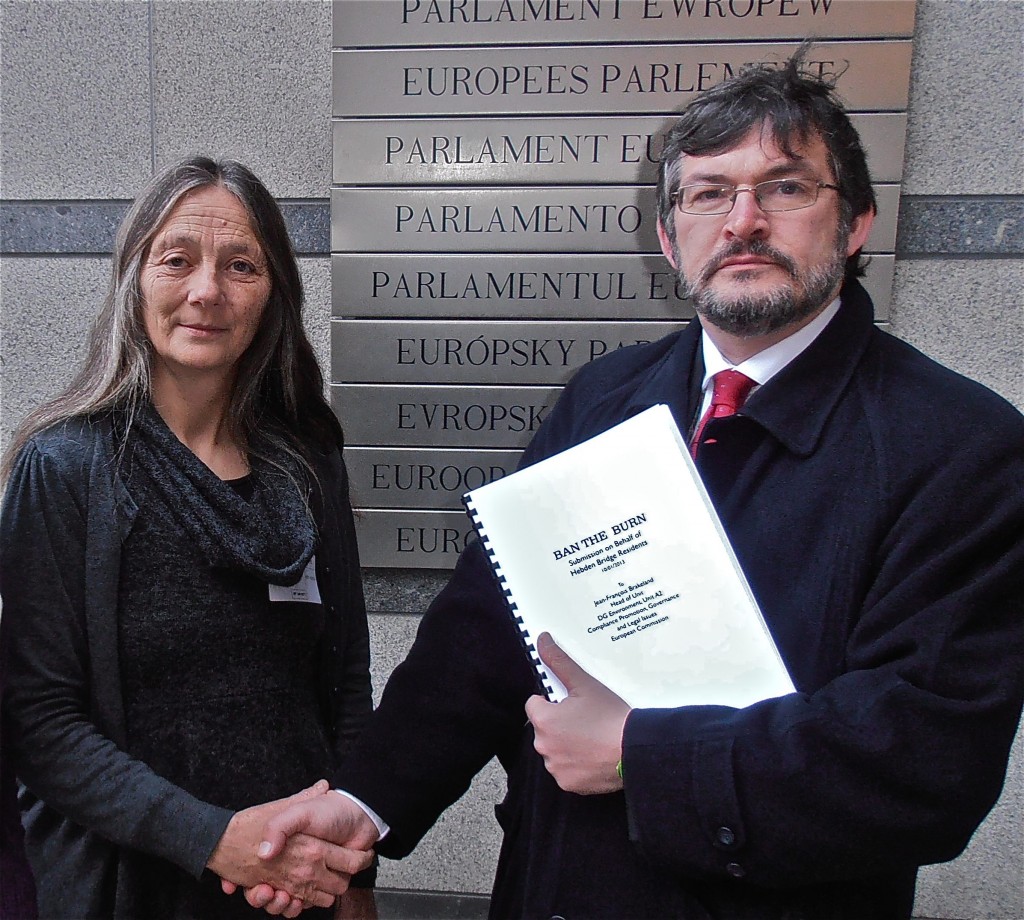The 2012 Report Burning on Deep Peat and Bog habitat in England: Reconciliation and re-examination of results from English Nature Research Reports 667, 698 and unpublished data, which we are making public here as the result of an Environmental Information Regulations request, presents the shocking conclusion that
“the voluntary [Heather and Grass Burning] code, Natural England management agreements, and site designation are having little demonstrable effect in protecting either bog or blanket peat areas from fire use.”
Site designation means protecting sites for conservation reasons. Designated sites may be Sites of Special Scientific Interest and/or Special Areas of Conservation or Special Protection Areas. SACs and SPAs are protected under the European Habitats Directive and Birds Directive, respectively.
Blanket bog is a UK Biodiversity Action Plan priority habitat and active blanket bog (as distinct from degraded blanket bog) is a priority habitat under the European Commission Habitats Directive.
The Report, prepared for Natural England by Cranfield University scientists, states that the present balance of evidence points to burning of vegetation on blanket bog being detrimental for:
- biodiversity conservation
- causing increases in surface water colouration and export of larger amounts of dissolved organic carbon
- the release of 5-15 times more carbon in this form compared to well vegetated areas which haven’t been burned.
The Report’s findings must surely give weight to Ban The Burn’s recent complaint to the European Commission, that Natural England and the Department of the Environment, Food and Rural Affairs is failing to enforce European conservation laws that protect blanket bog and biodiversity on Walshaw Moor Estate.
The RSPB has also asked the EU Commission to investigate Natural Englands ‘probably unlawful activities’, of failing in its duties to enforce wildlife and habitat protection laws on Walshaw Moor Estate, and has asked the European Commission to step in.
Mike Clarke, RSPB chief executive, said
“The decision to lodge this complaint has not been taken lightly, but this is a vitally important issue which centres on the Government’s statutory duty to protect our natural environment.”
Habitat and wildlife conservation laws – lip service is all you ever get…
Since they’re having “little demonstrable effect in protecting bog or blanket peat areas from fire use“, what’s the point of the Heather and Grass Burning Code, Natural England’s Management Agreements and the EU Habitats and Birds Directives?
At bottom, the question of enforcing European conservation laws (the Habitats and Birds Directives) on Walshaw Moor Estate seems to come down to a conflict between the grouse shooting estate’s anticipated profits and the government’s duty to enforce laws that protect the vital blanket bog habitat, and the biodiverse wildlife it sustains.
When Natural England attempted to limit Walshaw Moor Estate’s grouse shooting activities, because it judged that WME was damaging protected habitats and wildlife by carrying out burning far more extensively than Natural England permitted in the 1995 Notice of Consent, Walshaw Moor Estate owner Richard Bannister sent Natural England an Assessment for Compensation Claim, giving notice that if Natural England was successful in restricting burning as it intended, he would claim more than £27m compensation.
Since the Coalition Government’s 2010 Comprehensive Spending Review had just cut Natural England’s 2011-2014 budget by £44.2m (21.5%), it’s unlikely that Natural England would be willing or able to pay £31.8m compensation.
Our MPs have let us down – the Environmental Audit Committee failed to notice when Jeanette Ward, Natural England’s Director of Regulation, gave factually incorrect and muddled information to them.
When MPs and the public agency charged with protecting habitats and wildlife fail to enforce the law, there is no check on privilege – literally, ‘private law’.
Failing to enforce wildlife and conservation laws is a dangerous precedent – laws apply to everyone, or they don’t apply to anyone. Lawyers, who reputedly earned millions between them during recent legal battles between Natural England and Walshaw Moor Estate, might be happy to argue the case. Meanwhile, the moors – and the planet – burn.

